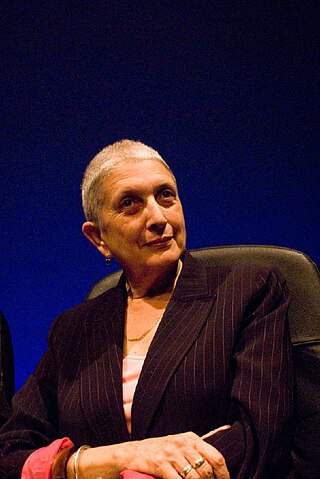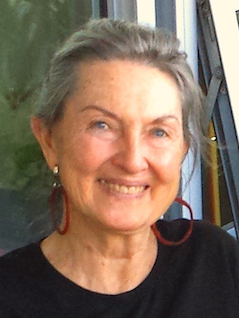Related Research Articles

Conflict theories are perspectives in political philosophy and sociology which argue that individuals and groups within society interact on the basis of conflict rather than agreement, while also emphasizing social psychology, historical materialism, power dynamics, and their roles in creating power structures, social movements, and social arrangements within a society. Conflict theories often draw attention to power differentials, such as class conflict, or a conflict continuum. Power generally contrasts historically dominant ideologies, economies, currencies or technologies. Accordingly, conflict theories represent attempts at the macro-level analysis of society.
Modernization theory is used to explain the process of modernization within societies. The "classical" theories of modernization of the 1950s and 1960s drew on sociological analyses of Karl Marx, Emile Durkheim and a partial reading of Max Weber, and were strongly influenced by the writings of Harvard sociologist Talcott Parsons. Modernization theory was a dominant paradigm in the social sciences in the 1950s and 1960s, then went into a deep eclipse. It made a comeback after 1991, when Francis Fukuyama wrote about the end of the Cold War as confirmation on modernization theory and more generally of universal history. But the theory remains a controversial model.

Comparative politics is a field in political science characterized either by the use of the comparative method or other empirical methods to explore politics both within and between countries. Substantively, this can include questions relating to political institutions, political behavior, conflict, and the causes and consequences of economic development. When applied to specific fields of study, comparative politics may be referred to by other names, such as comparative government.
Marxism is a method of socioeconomic analysis that uses a materialist interpretation of historical development, better known as historical materialism, to understand class relations and social conflict and a dialectical perspective to view social transformation. It originates from the works of 19th-century German philosophers Karl Marx and Friedrich Engels. As Marxism has developed over time into various branches and schools of thought, no single, definitive Marxist theory exists. Marxism has had a profound impact in shaping the modern world, with various left-wing and far-left political movements taking inspiration from it in varying local contexts.
The International Institute for Research and Education (IIRE) is a research and educational centre based in Amsterdam, Netherlands. It conducts training and publishes research for and by progressive activists around the world.
Adam Przeworski is a Polish-American professor of political science specializing in comparative politics. He is Carroll and Milton Professor Emeritus in the Department of Politics of New York University. He is a scholar of democratic societies, theory of democracy, social democracy and political economy, as well as an early proponent of rational choice theory in political science.
The British and Irish Communist Organisation (B&ICO) was a small group based in London, Belfast, Cork, and Dublin. Its leader was Brendan Clifford. The group produced a number of pamphlets and regular publications, including The Irish Communist and Workers Weekly in Belfast. Τhe group currently expresses itself through Athol Books with its premier publication being the Irish Political Review. The group also continues to publish Church & State, Irish Foreign Affairs, Labour Affairs and Problems.

Ronit Lentin is an Israeli/Irish political sociologist and a writer of fiction and non-fiction books.

Sylvia Theresa Walby is a British sociologist, currently Professor of Sociology, Director of the Violence and Society Centre at the City University of London. She has an Honorary Doctorate from Queen's University Belfast for distinction in sociology. She is noted for work in the fields of the domestic violence, patriarchy, gender relations in the workplace and globalisation.

Ariel Salleh is an Australian sociologist who writes on humanity-nature relations, political ecology, social change movements, and ecofeminism.
The First Conference of the Communist Parties of Latin America was in Buenos Aires, Argentina, June 1–12, 1929. Thirty-eight delegates, representing Argentina, Brazil, Bolivia, El Salvador, Guatemala, Cuba, Colombia, Ecuador, Mexico, Panama, Paraguay, Peru, Uruguay, and Venezuela, took part in the meeting. The only established communist party in the region that did not participate was the Communist Party of Chile, which at time suffered a period of harsh repression under the government of Carlos Ibáñez del Campo.

Marxist sociology refers to the application of Marxist perspective within the study of sociology. Marxism itself can be recognized as both a political philosophy and a sociological method, insofar as it attempts to remain scientific, systematic, and objective rather than purely normative and prescriptive. Hence, Marxist sociology is "a form of conflict theory associated with…Marxism's objective of developing a positive (empirical) science of capitalist society as part of the mobilization of a revolutionary working class."
Carlos Alberto Torres Novoa is a distinguished professor.
Henry Bernstein is a British sociologist and Emeritus Professor of Development Studies at the University of London: School of Oriental and African Studies. He has worked for several decades on the political economy of agrarian change, social theory, peasant studies, land reform, and the rural economy in South Africa.
Tom Brass is an academic who has written widely on peasant studies. For many years he was at the University of Cambridge as an affiliated lecturer in their Faculty of Social and Political Sciences and at Queens' College, Cambridge as their Director of Studies of the Social and Political Sciences. For many years he was an, and then the, editor of the Journal of Peasant Studies. Murray reports Brass as being "dismissive of the cultural turn in peasant studies" and the rise of post-modern perspectives and his notion that this has been a conservative process and that it has lent support to neoliberalism.
Political economy in anthropology is the application of the theories and methods of historical materialism to the traditional concerns of anthropology, including but not limited to non-capitalist societies. Political economy introduced questions of history and colonialism to ahistorical anthropological theories of social structure and culture. Most anthropologists moved away from modes of production analysis typical of structural Marxism, and focused instead on the complex historical relations of class, culture and hegemony in regions undergoing complex colonial and capitalist transitions in the emerging world system.

In Marxist theory, society consists of two parts: the base and superstructure. The base refers to the mode of production which includes the forces and relations of production into which people enter to produce the necessities and amenities of life. The superstructure refers to society's other relationships and ideas not directly relating to production including its culture, institutions, roles, rituals, religion, media, and state. The relation of the two parts is not strictly unidirectional. The superstructure can affect the base. However, the influence of the base is predominant.
Neo-Marxism is a Marxist school of thought originating from 20th-century approaches to amend or extend Marxism and Marxist theory, typically by incorporating elements from other intellectual traditions such as critical theory, psychoanalysis, or existentialism. Neo-Marxism comes under the broader framework of the New Left. In a sociological sense, neo-Marxism adds Max Weber's broader understanding of social inequality, such as status and power, to Marxist philosophy.
The Socialist Party of Northern Ireland, sometimes known as the Northern Ireland Socialist Party, was a small socialist group based in Northern Ireland in the 1930s.
Ronald H. Chilcote is a political economist from the United States. He is currently the Edward A. Dickson Emeritus Professor of Economics and Political Science at the University of California, Riverside, and has served as managing editor of the academic journal Latin American Perspectives since its founding in 1974. Chilcote's main area of research is on Brazil, Portugal and the former Portuguese colonies in Africa, as well as comparative politics, political economy and development theory.
References
- ↑ Frans J Schuurman (ed.), Beyond the impasse: new directions in development theory. London: Zed Books, 1993, p. 224.
- ↑ Curriculum Vitae: Professor Ronaldo Munck. Retrieved at: https://www.researchgate.net/publication/323124923_Ronaldo_Munck_cv_2019.
- ↑ Curriculum Vitae: Professor Ronaldo Munck. Retrieved at: https://www.researchgate.net/publication/323124923_Ronaldo_Munck_cv_2019.
- ↑ Ronaldo Munck, Politics and Dependency in the Third World: The Case of Latin America. London: Zed Books, 1984.
- ↑ Ronaldo Munck, Latin America: The Transition to Democracy. London: Zed Books, 1989.
- ↑ Ronaldo Munck, Contemporary Latin America. London: Palgrave, 2002, 2007, 2012.
- ↑ Ronaldo Munck, Rethinking Latin America: Development, Hegemony and Social Transformation. New York: Palgrave Macmillan, 2013.
- ↑ Ronaldo Munck, Ireland: Nation, State and Class Conflict. Boulder, Colorado: Westview Press, 1985.
- ↑ Ronaldo Munck, Belfast in the Thirties: An Oral History (with B Rolston). Belfast: Blackstaff Press, 1987.
- ↑ Ronaldo Munck, The Irish Economy: Results and Prospects. London: Pluto Press, 1993.
- ↑ Ronaldo Munck, Globalisation, Migration and Social Change in Ireland: After the Celtic Tiger (contributing editor), London: Ashgate. 2011.
- ↑ Ronaldo Munck, The New International Labour Studies: An Introduction. London: Zed Books, 1988.
- ↑ Ronaldo Munck, Argentina: From Anarchism to Peronism. Workers, Unions and Politics in Argentina 1855-1985. London: Zed Books, 1986.
- ↑ Ronaldo Munck, Labour Worldwide in the Era of Globalisation: Alternative Union Models in the New World Order (contributing lead editor). London: Macmillan Press, 1998.
- ↑ Ronaldo Munck, Labour and Globalisation: A New Great Transformation? London: Zed Books, 2002.
- ↑ Ronaldo Munck, Globalisation and Contestation: The Great Counter-Movement. London and New York: Routledge, 2006.
- ↑ Ronaldo Munck, The Difficult Dialogue: Marxism and Nationalism. London: Zed Books, 1986.
- ↑ Ronaldo Munck, Marx @ 2000: Late Marxist Perspectives. London and New York: Macmillan Press, 2000.
- ↑ Ronaldo Munck, Critical Development Theory: Contributions to a New Paradigm. (contributing editor) London: Zed Books, 1999.
- ↑ Ronaldo Munck, Water and Development: Good governance after Neoliberalism (contributing lead editor), London: Zed Books and CROP, 2015.
- ↑ Ronaldo Munck, Globalisation and Migration: New Conflicts, New Politics (contributing lead editor) London: Routledge
- ↑ G. Honor Fagan and Ronaldo Munck (eds.), Globalization and Security [2 volumes]. Praeger, 2009.
- ↑ "Harrison, Miss Lillian Gemma".